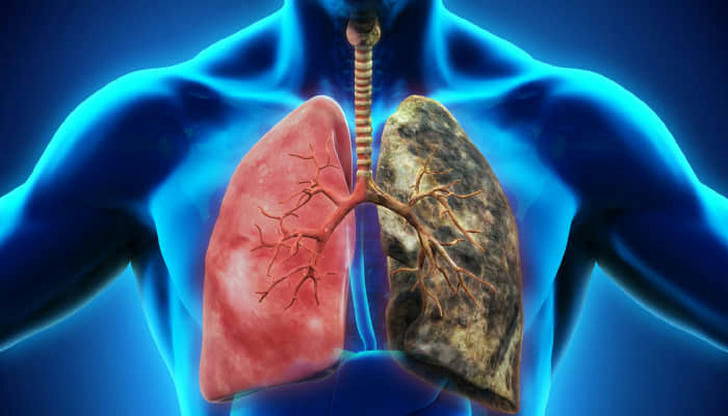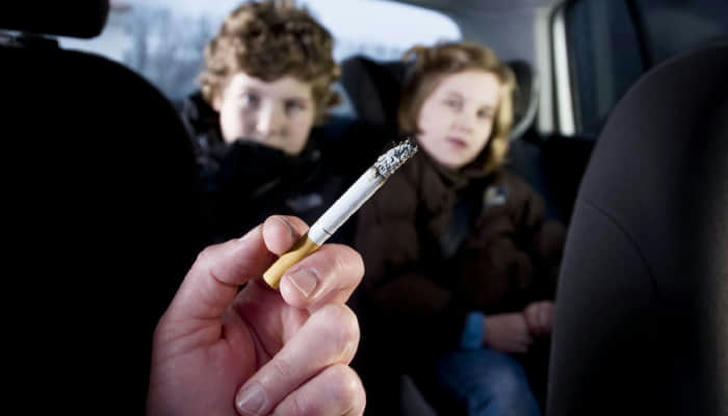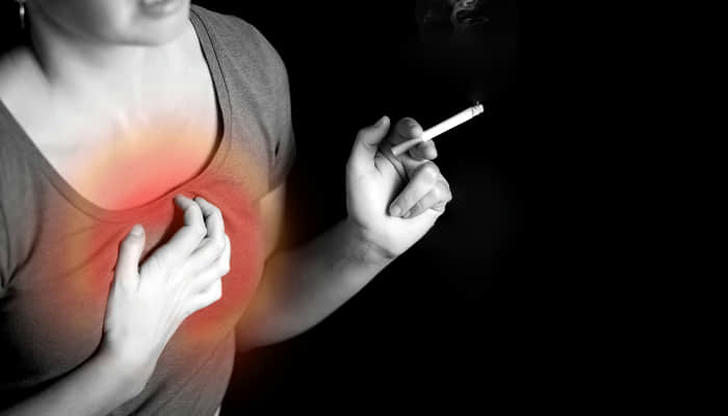The Dangers of Second-Hand Smoke May Be Worse Than You Think
Secondhand smoke actually consists of two types of smoke, one is the smoke exhaled by smokers, called mainstream smoke; the other is the smoke produced when cigarettes are burned, called sidestream smoke. No matter what kind of smoke a non-smoker inhales, it is considered second-hand smoke.
Compared with the mainstream smoke inhaled by smokers, the tobacco smoke inhaled by second-hand smoke exposure has a different chemical composition and concentration of each component. The content of some chemical components that are seriously harmful to the human body is even tens of times higher than that in mainstream smoke. Secondhand smoke exposure can cause serious damage to human health.

What Harm Does Second-Hand Smoke Cause to the Body?
• Increase the Risk of Lung Cancer
American medical researchers recently published a research report stating that passive smoking, commonly known as "second-hand smoke", is more dangerous than previously known. Some women who live with smokers are 2.6 to 6 times more likely to develop lung cancer than the average person.
• Impair Memory
Harmful substances such as nicotine in smoke stimulate the brain and cause cerebrovascular sclerosis, which affects brain function. The intellectual development of children exposed to long-term passive smoking is significantly worse than that of children who grow up in a non-smoke environment.

• Cause Asthma, Pneumonia, and Ear Inflammation in Children
Children are the biggest victims of environmental pollution. Children are most susceptible to harm from pollutants due to their active nature, poor self-protection ability, and unsound immune function. If parents smoke at home, children will not act against it at all, nor will they take some measures to protect themselves. However, the main harms of second-hand smoke to children’s health include asthma, sudden death syndrome in young children, tracheitis, pneumonia, and ear inflammation. Only a few children consciously refuse passive smoking and express opinions to their families.
• Harm to Pregnant Women
If a mother inhales second-hand smoke for a long time during pregnancy, most of the harmful chemicals released when the tobacco is burned can pass through the placenta and “harass” the innocent baby. In particular, toxic gases such as carbon monoxide can reduce the blood oxygen concentration in the mother’s body, leading to hypoxia in the fetus; and nicotine, an addictive drug in tobacco, can cause blood vessels to narrow and slow down blood flow, which means providing the fetus with nutrition and oxygen will be reduced, easily causing premature birth of the baby. However, premature babies are prone to functional impairments in breathing, digestion, and body temperature regulation, and may even die soon after birth.

• Cause Infertility
From a clinical point of view, smoking will have adverse effects on female reproductive function, sexual function, endocrine, and other aspects, and increase the risk of infertility. Clinical investigations show that women who smoke passively have a higher risk of delayed conception than women who do not smoke passively, and continued passive smoking is related to a decrease in women’s ability to conceive. A study in the United States pointed out that men who have been exposed to second-hand smoke for a long time are prone to mutations in their germ cells and may pass on defective genes to the next generation.
• Damage to Hearing
Secondhand smoke not only damages the eyes and throat, but the latest US research has found that people who do not smoke but regularly inhale secondhand smoke have an increased risk of hearing loss. The survey found that people who smoked and were often exposed to second-hand smoke were more likely to suffer from low- and medium-frequency hearing loss.

What to do After Being Exposed to Second-Hand Smoke?
• The first thing every morning is to open the windows, wipe the table, and mop the floor. This can remove most of the tobacco leaf residues in the daily dust. Douse the cigarette butts with water or throw them into a paper cup filled with water. Do not smoke them directly. If the cigarette butt is extinguished in the cylinder, the dust will be sucked into the nasal cavity again, so it is best to dispose of the cigarette butt in time.
• Eat more fresh fruits and vegetables (especially fruits and vegetables rich in carotene and vitamin C), because vitamins have antioxidant functions, and some can even fight cancer (such as papaya, tomatoes, carrots, pumpkins, and other fruits and vegetables).
• Drink more water, urinate more, exercise more, and perspire more, which can accelerate the elimination of nicotine and other harmful substances from the body.
• If you have been exposed to smoking, change your clothes and take a shower promptly after returning home to avoid residues of harmful tobacco substances.
• Families with pregnant women or children should avoid contact with smokers. Place green plants indoors, provide regular ventilation, and use an air purifier if possible.
